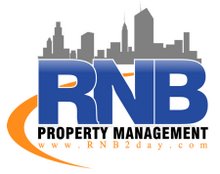By R. Brooks Whitehead, JD-MBA, Esq., The Burton Law Firm
Whether you are a seasoned Landlord, or looking to lease your property for the first time, you know it is important to stay up to date on legal issues affecting your rental. However, it is likely that some duties, obligations, and strategies will escape you, even when you try your best to stay current. Even lawyers will acknowledge that the sheer amount of information to learn, know, and retain can be intimidating. Rather than explore one topic in depth, this article will discuss a broad range of legal issues you may want to consider at different stages of the rental process.
Stage 1: Prepping the Property for Rent
So you have a house, condo, or other property – let’s put it on the rental market! Not so fast. There is actually a lot to consider before even listing your property. Do you have adequate insurance? Not just fire and casualty, but depending on the area, flood insurance may be advisable. Is the structure up to code, including those do-it-yourself projects you completed last summer? There is no better way to have your renter rightfully refuse to pay their rent than habitability issues. Have you had your home screened for asbestos or other hazardous materials? Nothing says “landlord liability” like toxic materials used in the construction of homes. In conclusion, make sure to cover your bases before actually putting the property up for rent – it can literally be a lifesaver.
Stage 2: Getting a Tenant
Now that the property is ready to go, should you lease to the first person to call? No – not a good strategy. Even though you may be anxious to get a lease signed and see those rent checks coming in, nothing will cause you bigger headaches than renting to a problematic tenant. It is important to select your new tenant only after a thorough screening process that includes a detailed questionnaire and background check. Make sure to hit important points such as credit, eviction reports, rental history, income, etc. At the same time, be sure to familiarize yourself with the requirements of the Fair Housing Act (and similar laws) to ensure that you do not step on the rights of potential tenants. In addition, make sure you have an appropriate lease agreement that is fair, but protective of your rights. If that sounds like a lot to know and do, that’s because it is. Involving an attorney or hiring a professional property management company may be a better route for those without the time, background, or desire to handle the selection and sign-up process.
Stage 3: During the Lease
If you have gone with a property management company, sit back and watch the professionals work. However, if you’ve decided to go it alone, there are some things you should know and consider. First, your tenant has legally enforceable property rights, including the right of quiet use and enjoyment of the premises. Translation: do not pop over unannounced for Sunday brunch, even if you bring the mimosas. Second, the government has enforceable rights against your property if your tenant is performing illegal acts on the premises. This can include seizure of the rental for sale at auction. Translation: check up every so often on the property, provided that you’ve given proper notice. Third, if the place needs repairs, arrange for them to be made in a timely manner by an experienced and insured independent contractor. Translation: it may be cheap in the short-term to have your cousin do electrical work, but the legal bills will stack up if something goes wrong.
Stage 4: Life After the Lease
So you have come to the point where your tenant’s lease is up and that security deposit is looking awfully attractive – don’t touch it just yet! Make sure that any charges you make against the deposit are proper, that those deductions are itemized and provided to your tenant, and that you cut your tenant a remainder check within the legally required timeline. If your tenant is refusing to leave, or is behind in rent, make sure to strictly follow all unlawful detainer procedures (definitely a time to consult your legal counsel or rely on the expertise of your property manager). Be aware that special laws apply if your tenant has filed bankruptcy – an unfortunate scenario that more and more Landlords may face while the economy still struggles.
Stage 5: Bonus Round
For those of you looking for some more in-depth advice on more complicated issues, your best bet is to consult an attorney, CPA, or both. They will be able to guide you through the mine field. For now consider these bonus points: (1) If you are not actively involved in the management of the property, special “passive activity” tax rules may apply, which affect your ability to write off losses on your rental, (2) If you are mildly concerned with asset protection, or you intend to acquire multiple rentals, you may want to consider creating a “blind trust” for purchasing your properties that provides privacy and some creditor protection. (3) If you are very concerned with strong asset protection, consider a limited liability company (LLC) that will minimize your personal liability in the event of a judgment against you and can play into your estate planning goals.
Conclusion: The issues discussed in this article may sound daunting, but they are all manageable provided you stay involved, informed, and vigilant. However, if any questions or uncertainties arise, you can rarely go wrong with consulting a professional.
Subscribe to:
Post Comments (Atom)


1 comment:
I blog quite often and I genuinely appreciate your content.
Your article has truly peaked my interest.
I'm going to book mark your website and keep checking for new details about once per week. I subscribed to your Feed too.
Feel free to visit my site: genital warts specialist
Post a Comment